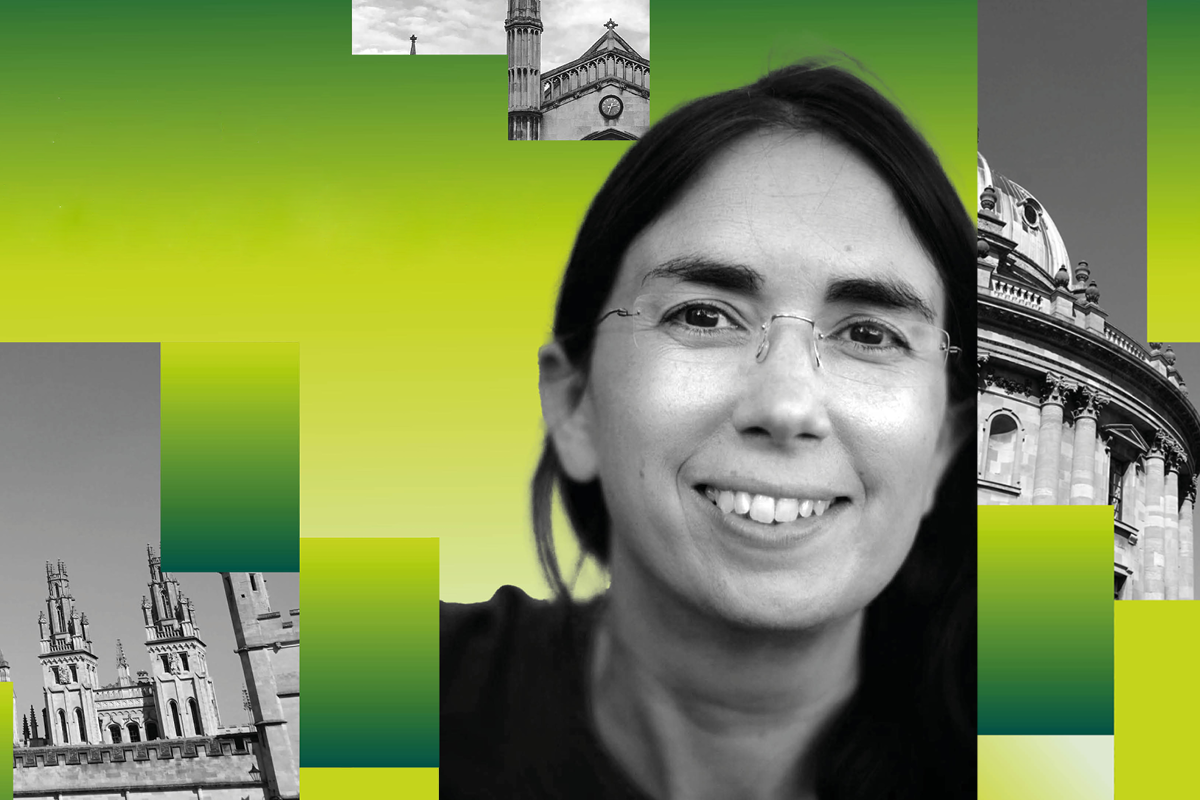Details from the OUP 2022-23 Responsible Publishing Report

Learn about our commitment to operating responsibly, how we are supporting our people and communities, and the progress we have made against our targets.
We have published our Responsible Publishing Report for 2022-23 which demonstrates how—as a signatory to the United Nations Sustainable Development Goal (SDG) Publishers Compact—we are aligning many of our operational and publishing activities with the SDGs, with a particular focus on promoting access to quality education, ethics, diversity and inclusion, and environmental sustainability.
Notably, the report shares progress against our three sustainability targets, including a 59% reduction in operational carbon footprint and a 70% total reduction in waste. 91% of the paper used by our strategic print suppliers is now certified sustainable, up from 75% the prior year.
Highlights from the report:
- Donating thousands of books to support educational initiatives worldwide, including to long-standing charity partner Book Aid International and to schools affected by the earthquakes in southern Türkiye and Syria.
- Increasing women’s representation at leadership level to 45% in December 2022, against a target of 50% representation by 2024.
- Sending zero waste to landfill from our two largest offices, representing 40% of our workforce.
- Conducting a climate risk assessment to embed climate risk more deeply into our risk management process.
- Developing a Sustainable Marketing Charter, with the aim of using sustainable paper for 100% of our marketing collateral by 2025, as well as reducing the amount of marketing print produced overall.
- Providing employees and their family members with access to the global Employee Assistance Programme, available in regional languages, including in multiple local dialects in India. There is also an on-site counsellor based at our largest office, Oxford.
- Aligning with the South African government’s initiative to address low levels of literacy and numeracy across the country, with our Road to Literacy campaign.
Introducing a new section: Publishing with Purpose
This year’s report includes a new section, Publishing with Purpose, which acknowledges the role publishing plays in educating future generations on social and environmental issues, promoting critical thinking, and increasing the impact of research. It details how many of the titles and content published by OUP address some of the world’s most pressing sustainable development challenges and inspire action.
Examples include:
- Raising awareness about the SDG topics through our titles. All About Us Now for Spain was the first course to collaborate with the United Nations High Commissioner for Refugees to educate learners on the challenges faced by child refugees.
- Publishing a wide spectrum of content which reflects the communities we serve. For example, the Oxford Dictionary of African American English is in development with Harvard University’s Hutchins Center for African and African American Research, and we have published hundreds of Academic titles to increase the visibility of underrepresented groups.
- Making impactful open access research on key topics relating to sustainability available through our Oxford Open series, including Oxford Open Climate Change and Oxford Open Energy.
- Improving our processes and policies to improve the accessibility and inclusivity of our content. The ‘Bring Your Voice to Primary Literacy Publishing’ initiative was introduced to attract authors from underrepresented backgrounds to write for our Primary Literacy list—and has already commissioned 15 authors.
Nigel Portwood, CEO of Oxford University Press, said:
‘I am extremely proud of the progress we have made this year, much of which can be attributed to the continued focus and hard work of our colleagues worldwide. Through collaboration, and a commitment to our mission—furthering the university’s objectives of excellence in research, scholarship, and education by publishing worldwide—we have pursued initiatives and activities that make a real difference, both within OUP, and among the communities we serve. But our work doesn’t stop there; we will continue to review and enhance our processes wherever possible, so that our publishing remains purposeful, challenges minds, and drives positive, long-lasting change in line with the UN’s Sustainable Development Goals.’
Read our full report here.



